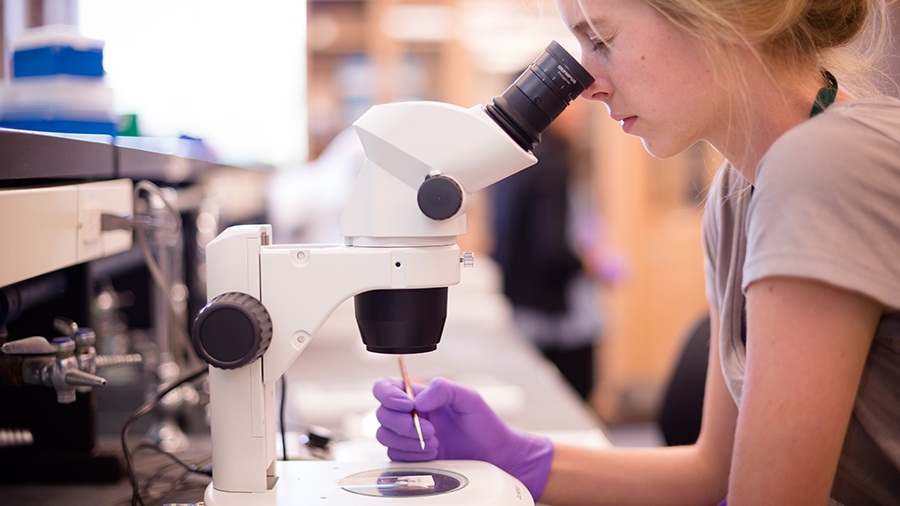
In Illinois healthcare news, Illinois State University has received a federal grant to install a new microscope lab. The $660,000 from The National Science Foundation (NSF) is meant to advance innovation in genetics, cell biology, development, neuroscience, and plant science and has the potential to transform Illinois into a science hotspot of the Midwest.
A very exciting piece of Illinois healthcare news, indeed.
“This will be a significant new resource for Central Illinois and beyond,” said Associate Professor of Genetics Kevin Edwards, the principal investigator of the grant. “It will produce 3D reconstructions of complex tissues like nervous system and muscle, and time-lapse videos of processes such as embryo development and wound repair.”
Scientists at Illinois Wesleyan University, the Millenium Pain Center in Bloomington and the USDA National Center for Agricultural Utilization Research in Peoria all contributed research ideas to the project.
The Confocal Microscopy Core Facility will be set up at ISU’s Science Lab building this fall. Over 50 undergraduate researchers per year are projected to learn cutting-edge microscopy techniques with help of this new confocal microscope.
The facility will also promote nationwide and international research collaborations, consolidating Illinois’ position as a digitally savvy healthcare state. In the recent years, ISU has become a hub for scientific innovation, many funded by the NSF.
In 2014, the NSF awarded a $510,000 grant to Wolfgang Stein, an assistant professor of Cellular Neurophysiology. Stein runs one of the few labs in the world that studies neurons using optical imaging. And earlier this year, NSF gave ISU $316,000 for the acquisition of a power cell sorter.
The new laboratory is all the more important since the field of 3D printed organs for transplants is really taking off. The global 3D bioprinting market is expected to reach a whopping $2.6 billion by 2024. Human 3D bioprinted tissue such as liver or kidney tissues, would speed up drug discovery and make treatments more affordable. In fact, a Chicago-based startup is on the cusp of cracking the code of bioprinting human cardiac tissue.
Are you interested in healthcare online reputation management for doctors and medical practices? Check out this ultimate guide.
